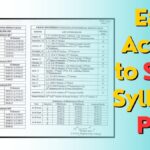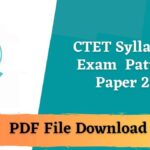For the average student who is usually afraid of writing routine assignments and keeps looking for help, I have some amazing hacks that will vanish your fear.
After long research, I have compiled some useful assignment writing tips that will not only save you time and energy but also help you get good marks.
One of the trendy techniques in assignment writing is the use of AI writing tools. We will also discuss how you can get benefit from these tools in the right way and at zero cost. Let’s begin with understanding the way to structure an assignment.
Table of Contents
Main Components of a Good Assignment Structure
The main components of a good assignment structure may include the following:
- Title page
- Table of Contents
- Assignment Body (Introduction, Main Subject, Conclusion)
- Summary/Conclusion
- References
6 Assignment Writing Hacks for Earning Higher Scores
Learning the assignment writing techniques will be a surefire way to achieve higher scores and excel academically.
By following the given-below 6 assignment preparation hacks, you can significantly enhance the quality of your assignments.
1. Perform Proper Research
Conducting thorough research is a fundamental aspect of assignment writing. It involves gathering relevant information from books, scholarly articles, reputable websites, and academic databases.
By gaining a thorough understanding of the subject matter, you can strengthen the foundation of your assignment and provide well-supported arguments.
2. Prepare an Outline
Creating an outline serves as a roadmap for your assignment. It helps you organize and establish a logical flow to ensure that you have covered all the necessary points.
An outline typically includes an introduction, body paragraphs with supporting evidence, and a conclusion as shown below:
You will start with the introduction and statement, followed by the causes and impacts of climate change, mitigation strategies, and adaptation measures, and write a brief conclusion.
By structuring your assignment in this way, you can present your ideas coherently and effectively.
3. Write Step by Step
Splitting the writing process into smaller steps will make it more manageable. Start by drafting your introduction, clearly stating your thesis statement, and providing a brief overview of your assignment.
Then proceed with tackling each body paragraph, supporting your arguments with evidence and analysis.
Finally, wrap up your assignment with a concise conclusion that summarizes your main points and offers a closing thought.
4. Use a Paraphrasing Tool for Rewriting
Paraphrasing is an essential skill in academic writing. It involves restating information in your own words while retaining its original meaning.
For academic writing, the choice of the right paraphrasing tool is of utmost importance. Among hundreds of online AI tools available online, Paraphrasingtool.ai is the most widely used among students, bloggers, content creators, etc.
The biggest reason is the variety of paraphrasing modes and text input options that you would not find in any other rephraser.
AI paraphrasing can assist you in rephrasing sentences and passages effectively and avoiding plagiarism.
5. Revise it for Grammar or Punctuation Mistakes
After completing your initial draft, it’s crucial to review your assignment for grammatical and punctuation errors.
Take the time to proofread your work and make the necessary corrections. Ensure that your sentences are properly structured and punctuation is accurate. It will help you enhance the clarity and professionalism of your writing.
6. Proofreading & Editing
The final step in the assignment writing process will be proofreading and editing. This involves checking for spelling mistakes, typos, formatting errors, and overall coherence.
In this practice, you will have the chance to polish your assignment, refine its language, and eliminate any lingering errors.
PS: It’s helpful to read your assignment aloud or have someone else review it to catch any overlooked mistakes.
Benefits of Using Paraphrasing Tools in Assignment Writing
1. Time-saving:
Writing from other sources can be time-consuming, especially when you must rephrase lengthy passages or complex sentences.
Paraphrasing tools automate this task, allowing you to save time and effort by quickly generating alternative versions of the original text.
2. Plagiarism prevention:
Plagiarism is a serious academic offense that can have severe consequences. AI Paraphrasers help you avoid unintentional plagiarism while retaining the original meaning.
This ensures that your work is unique and properly attributes the ideas and information to the sources.
3. Language enhancement:
Online paraphrase tools can help you improve the clarity and coherence of your writing by offering suggestions for alternative vocabulary, synonyms, and sentence structures. It is useful for students in refining their assignment language and enhancing its readability.
4. Learning opportunity:
Paraphrasing tools can serve as valuable learning aids. By examining the suggestions and alterations made by the tool, you can gain insights into effective paraphrasing techniques.
This exposure to different phrasings and sentence constructions can expand your writing repertoire and improve your overall writing skills.
5. Consistency in style and tone:
In academic writing or research papers, maintaining consistency in style and tone can be challenging.
Online paraphrasing tools can help you ensure consistency by providing alternative phrasings that align with the established style and tone of your assignment. This helps maintain a cohesive and professional flow throughout your work.
Summary
From performing thorough research and utilizing effective outlines to writing step by step, employing paraphrasing tools for rewriting, revising, and engaging in meticulous proofreading and editing, each tip plays a crucial role in enhancing your assignments.
Moreover, it will help you to improve your writing skills to earn good marks and develop lifelong skills that extend beyond the classroom.
Thank you.








